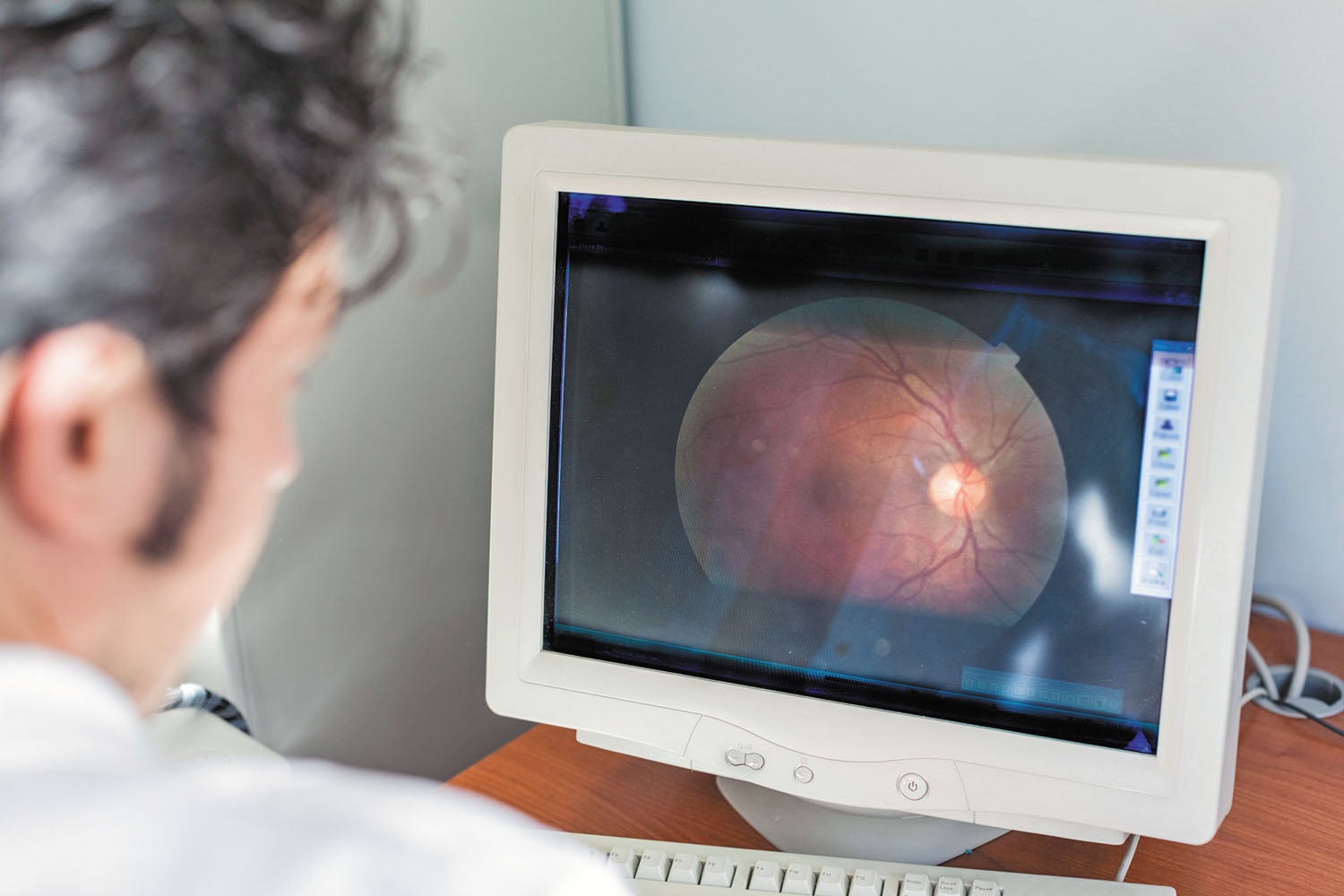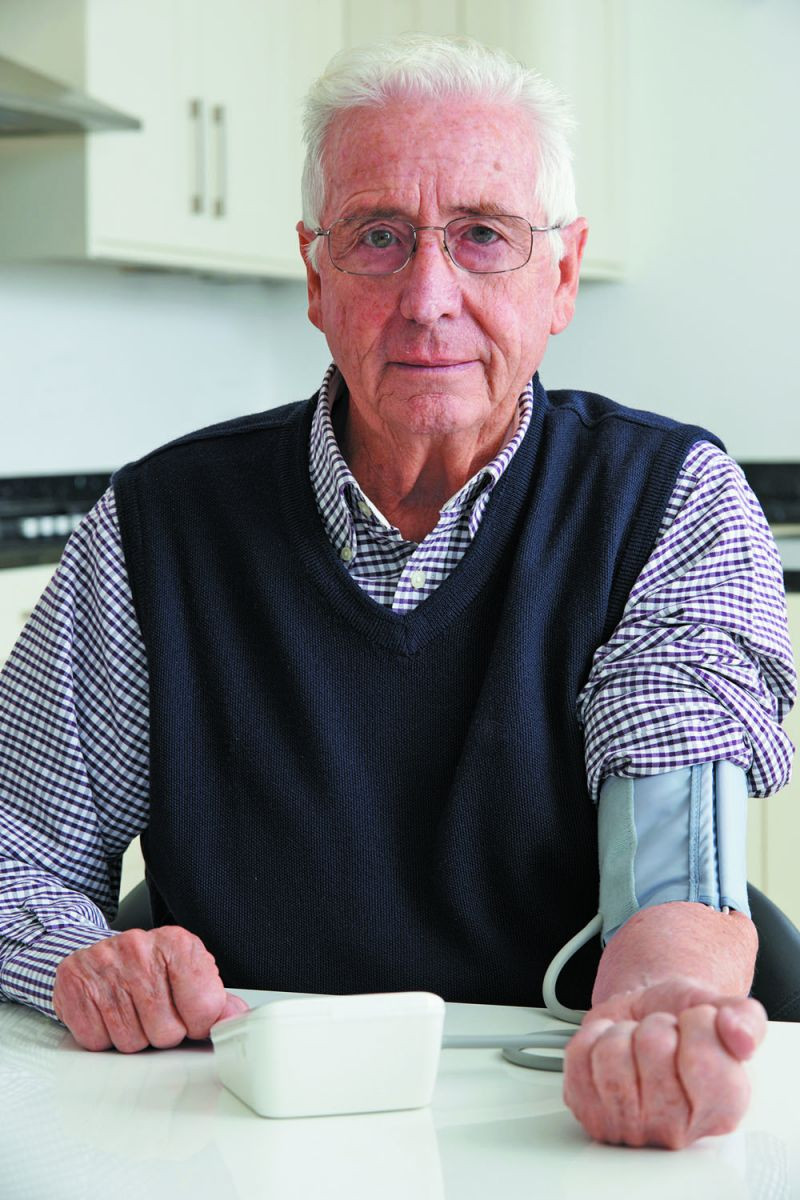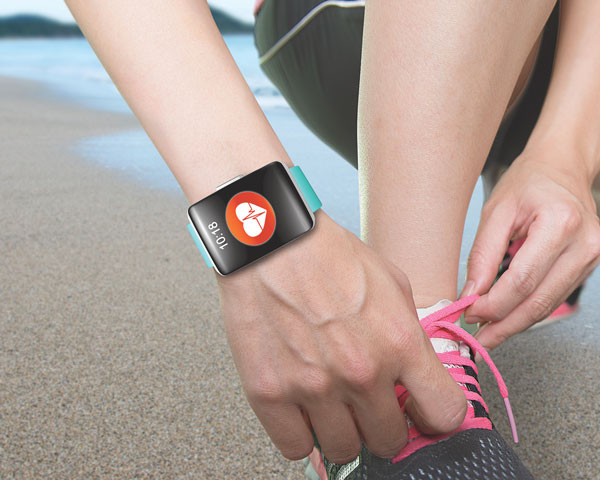
5 timeless habits for better health

What are the symptoms of prostate cancer?

Is your breakfast cereal healthy?

When pain signals an emergency: Symptoms you should never ignore

Does exercise give you energy?

Acupuncture for pain relief: How it works and what to expect

How to avoid jet lag: Tips for staying alert when you travel

Biofeedback therapy: How it works and how it can help relieve pain

Best vitamins and minerals for energy

Should you take probiotics with antibiotics?
Medical Devices & Technology Archive
Articles
Harnessing big data to help the heart
Machine learning may improve the way doctors detect heart disease.
Image: © exdez/Getty Images
Imagine a world in which a photo of your eye — taken with your smartphone — could determine your risk of a heart attack, and your smartwatch could estimate your odds of experiencing a stroke. Sounds pretty futuristic, right?
In fact, preliminary studies showing the feasibility of both approaches have already been published. They're just two examples of the new wave of technology-based innovations (see "Transformative technologies") that are beginning to change health care as we know it.
Choosing and using a home blood pressure monitor
These devices help you keep tabs on a key indicator of your cardiovascular health.
Of all the things you measure to assess your health, blood pressure certainly ranks among the most important. High blood pressure not only puts you at risk for a heart attack or a stroke, but also can damage your brain, eyes, and kidneys.
For some people with this common condition, checking blood pressure intermittently at the doctor's office may not be enough. Investing in a simple, inexpensive home blood pressure monitor often makes sense. It's especially helpful when you're starting a new medication or are taking several different ones and still working to reach your blood pressure goal.
Taking a look at the latest trends in heart rhythm monitoring
Bulky recorders with lots of wires are being replaced by small patches and implanted devices.
An abnormal heart rhythm — when your heartbeat is too fast, too slow, or irregular — can be tricky to detect and diagnose. These electrical misfires are often short-lived and sporadic, so they're rarely seen on a routine electrocardiogram (ECG), a 10-second recording of the heart's electrical activity.
Many heart rhythm changes are harmless, but some cause fainting or other worrisome problems — including stroke. That's why doctors often rely on portable ECG devices that record your heart rhythm for several days — or even up to a month. But they're a bit of a nuisance because of the many wires, and you must remove and replace the electrodes when you shower or bathe.
Don’t fear pacemakers
Today's versions can correct many types of heart conditions that can keep you active and help you live longer.
Image: © cacaroot/Thinkstock
Think of a pacemaker, and perhaps the image of a frail person stuck on the couch comes to mind. If so, you need to update your mindset. For many men, these tiny electronic devices can change their lives for the better.
"The likelihood of needing a pacemaker increases with age," says Dr. Peter Zimetbaum, a cardiologist with Harvard-affiliated Beth Israel Deaconess Medical Center. "The good news is that today's pacemakers have evolved from fixing irregular heartbeats to helping the heart mimic normal function, all of which can help many men with certain heart conditions stay more active longer."
Sound amplification device may be a cheaper hearing aid choice
In the journals
Hearing aids can cost thousands of dollars, but a study in the July 4, 2017, Journal of the American Medical Association found that less expensive over-the-counter personal sound amplification products (PSAPs) might be a good alternative for some people.
PSAPs resemble hearing aids and help amplify sounds the same way, but are not regulated by the FDA and thus cannot be marketed as a correction or treatment for hearing loss. They often are advertised as being helpful in noisy places like crowds and meetings, and are sold online for about $200 to $400.
Safety of implanted cardiac devices and MRIs: An update
Research we're watching
Contrary to conventional wisdom, most people with older implanted cardiac devices may be able to safely get a magnetic resonance imaging (MRI) scan, according to a study in the Feb. 23, 2017, New England Journal of Medicine.
The devices, which include pacemakers and implantable cardioverter-defibrillators (ICDs), help regulate and restore the heart's normal rhythm. Concerns that the powerful magnets in MRIs could damage these battery-operated devices led to the development of newer, MRI-safe devices. But an estimated two million people in the United States have one of the older devices, and at least half of them might need an MRI in the future.
Implanted defibrillators in older people: What to expect
Research we're watching
Implantable cardioverter-defibrillators (ICDs) are miniature electronic devices placed under the skin below the collarbone to sense and stop abnormal heart rhythms. A study in the Jan. 24, 2017, Journal of the American College of Cardiology provides new information about outcomes in older people who receive these lifesaving devices.
The study included 12,420 people with an average age of 75. All had survived a sudden cardiac arrest and received an ICD. Nearly four in five of the participants survived at least two years. During the two-year period, nearly 65% were hospitalized at some point. Many were admitted to skilled nursing facilities during the study, including about 32% of those ages 80 and older.
Stents and bypass equally effective for many cases of heart disease
A new study found that a minimally invasive stent procedure is just as effective as bypass surgery for people with left main coronary artery disease. Stenting also had a lower risk of complications and death compared with the surgery.
Are wristwatch-style heart rate monitors accurate?
Wristwatch-style fitness monitors use a sensor that detects blood flow through the skin to estimate a person’s heart rate. Some brands are more accurate that others, but none are as accurate as chest-strap monitors.
Ask the doctor: Is placing an IUD immediately after delivery safe?

5 timeless habits for better health

What are the symptoms of prostate cancer?

Is your breakfast cereal healthy?

When pain signals an emergency: Symptoms you should never ignore

Does exercise give you energy?

Acupuncture for pain relief: How it works and what to expect

How to avoid jet lag: Tips for staying alert when you travel

Biofeedback therapy: How it works and how it can help relieve pain

Best vitamins and minerals for energy

Should you take probiotics with antibiotics?
Free Healthbeat Signup
Get the latest in health news delivered to your inbox!
Sign Up








